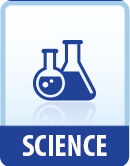|
This section contains 688 words (approx. 3 pages at 300 words per page) |

|
 Escherichia coli
Escherichia coli
Escherichia coli (E. coli) is a very common bacterium that normally inhabits the digestive tract of animals, including humans. It is widespread in the natural world and can also be found in soil and water. It is a member of the bacterial family Enterobacteriaciae, which also includes the bacteria Shigella, Salmonella, and Yersinia, among others. Some of these organisms, including E. coli, can cause serious diseases under certain conditions.
Attributes of E. Coli
E. coli is important to human health because it is a source of vitamins B12 and K, which it manufactures from undigested food in the large intestine. Unlike many other intestinal bacteria, E. coli can survive and grow in the presence of oxygen (although it can also grow without oxygen), which makes it a useful experimental model organism in the laboratory.
Even though E. coli is a single species of bacteria...
|
This section contains 688 words (approx. 3 pages at 300 words per page) |

|


